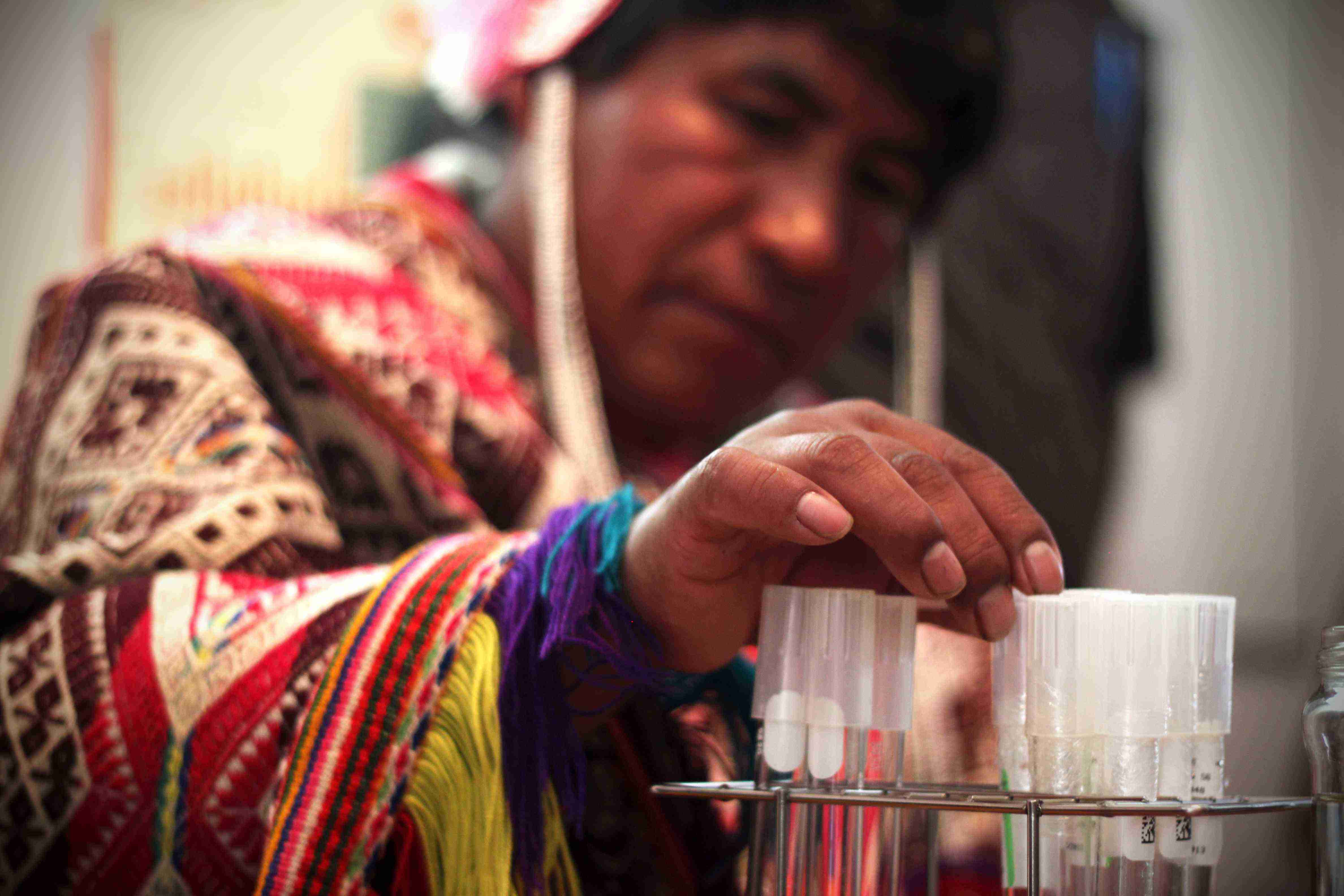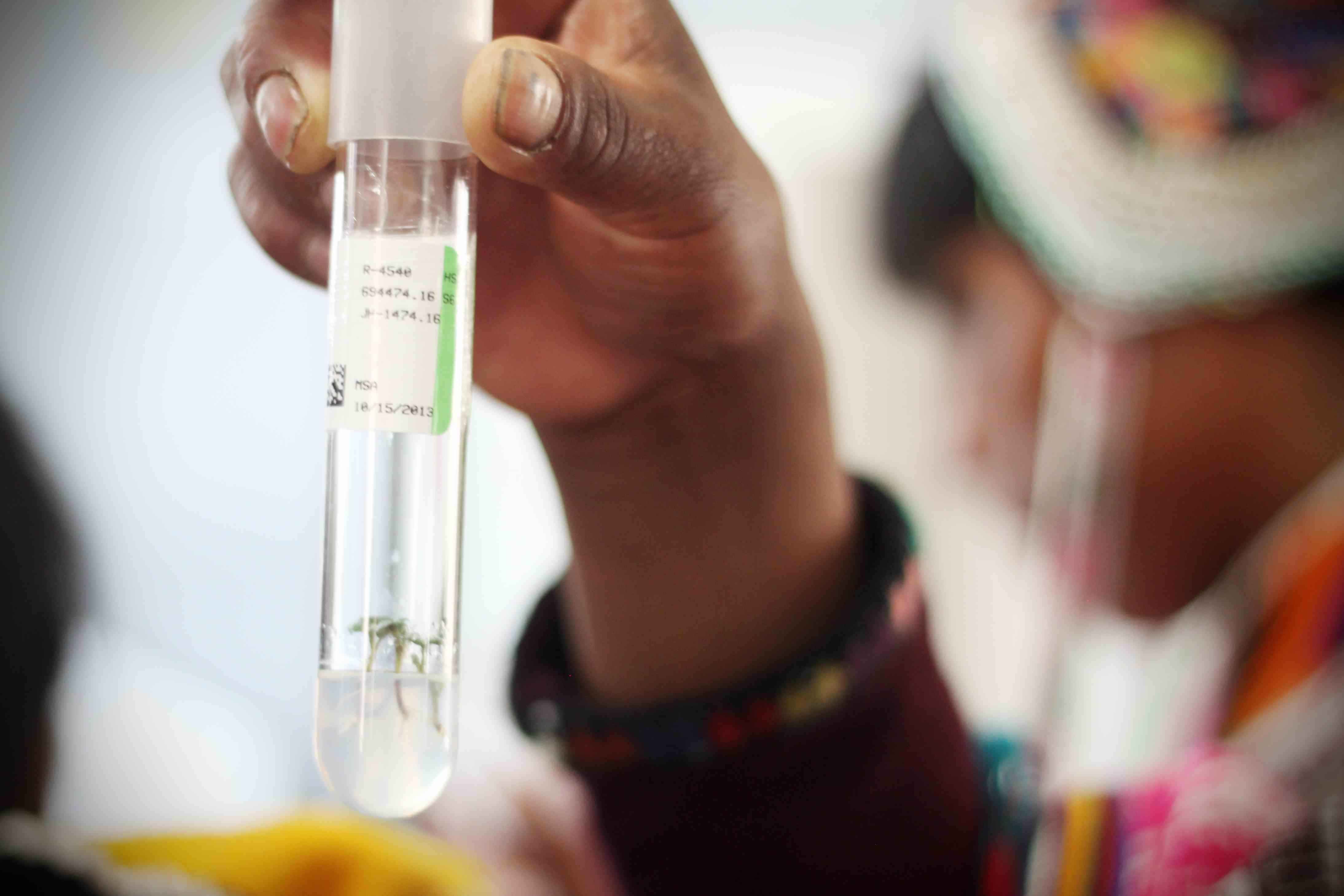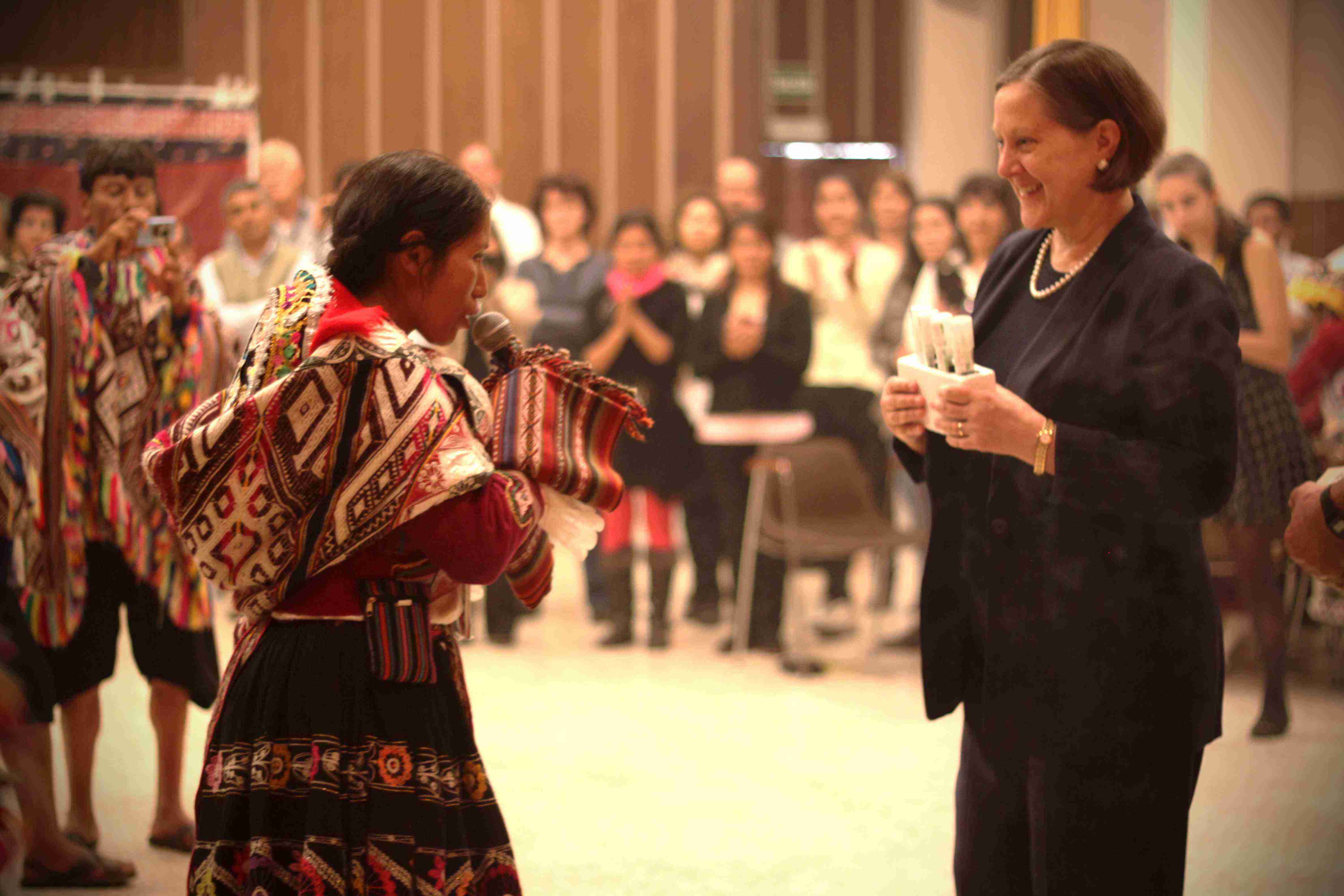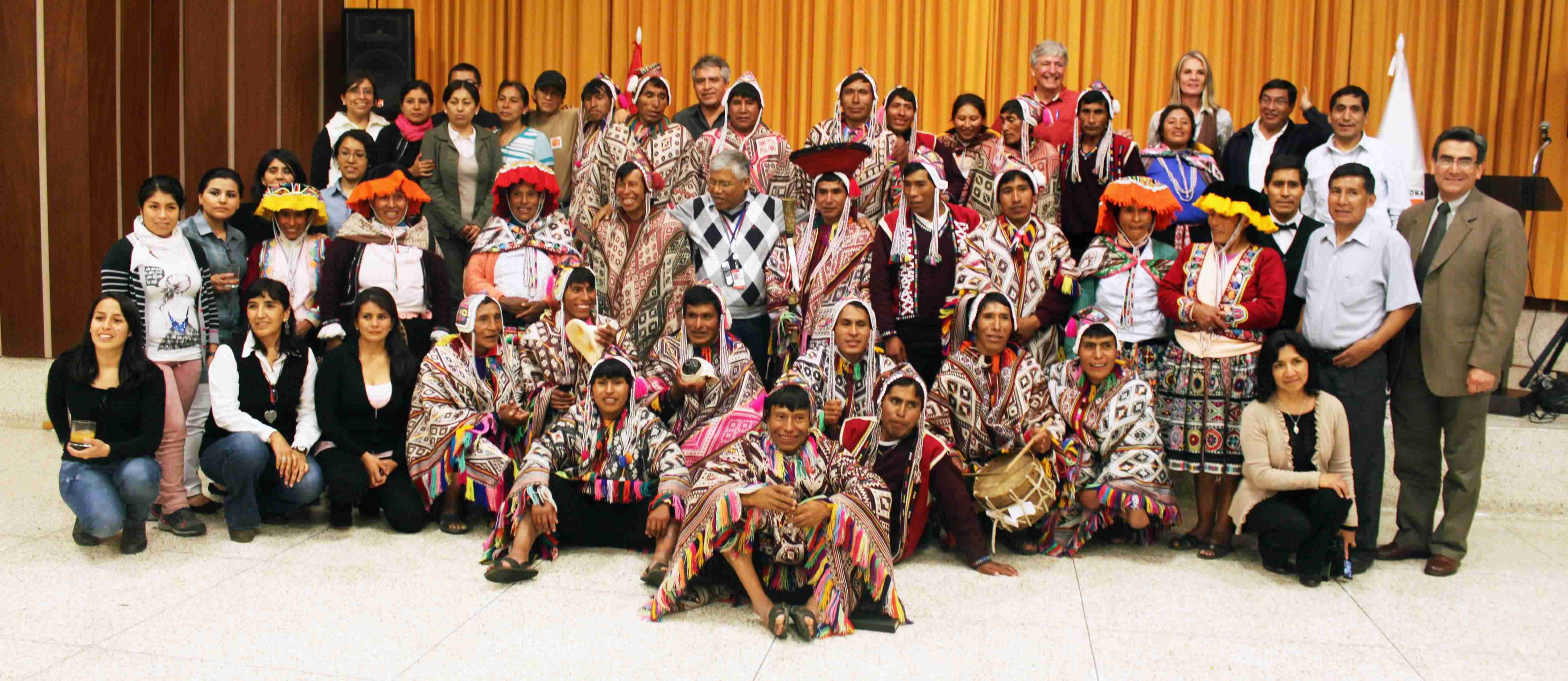Pachamama, or Mother Nature, plays a dynamic role in Andean culture and the vitality of this tradition was on display at the International Potato Center (CIP) on October 25 when 30 Andean farmers from the Potato Park in Pisac, a town near Cusco in Peru, came to celebrate Pachamama and ensure future generations can benefit from her bounty.
Over the years, a unique relationship has developed between the communities of Potato Park and CIP and our shared respect for Pachamama. These farmers have both a spiritual relationship with Mother Nature and a scientific connection to her. CIP works with these communities to deepen their connection to both.
The reason behind the group’s visit was to celebrate the long-standing relationship between CIP and the community, and for the preservation of over 100 of their most valued potato cultivars for protection in CIP’s state of the art genebank.
The group traveled from Pisac via bus and arrived at CIP wearing rainbow colored ponchos and intricately decorated petticoats, lending the scientific CIP campus an air of tradition and festivity. The group was invited to participate in workshops on pollination and True Potato Seed (TPS) production at the CIP Genebank. While the purpose of these workshops was to educate the local farmers on potato conservation, the visit also served to show the group where the vast majority of Peru’s precious potato collection is being safeguarded.
It goes without saying that CIP scientists also had a lot to learn from the visiting farmers, and watching the colorful and traditional group being led through CIP’s state of the art genebank was to witness two different potato realities being harmoniously drawn together. During the course of the morning, scientists and local farmers discussed drought, late blight, and pests, while also chatting about their favorite potato varieties and flavors.

A local farmer helps to record potato samples at the genebank
With Spanish and Quechua being spoken in unison, the visitors were invited to partake in CIP’s day-to-day activities of recording potato samples and preparing cultivars for storage. Both CIP scientists and the visitors had a lot to learn from one another, and they spent the morning in engaging discussions, conversations, and workshops interrupted by occasional outbursts of laughter or surprise at having seen something curious or new.

Visitors were invited to partake in a workshop on pollination and True Potato Seed production
Beyond the mutual sharing of traditional knowledge and scientific information, the underlying reason behind the visit was the group to deliver a number of their most precious potato cultivars for virus cleaning, preservation, and safekeeping in the genebank. CIP has helped communities throughout Peru with a dynamic potato repatriation program over the past 15 years. This includes the conservation of cultivars and the reintroduction of lost potato lines, disease free, to communities living throughout the Andean highlands. Due to terrorism and poverty, a number of different fields were abandoned over the past 40 years leading to the loss of a number of potato lines. CIP however, started its collection of potato cultivars in 1971 and a number of potato varieties that were lost, have now been returned to farmers living in the rural Andes.
Any new additions to the Genebank from the areas where tubers collected over 40 years ago are also very useful in terms of helping CIP scientists to better understand the effects of climate change on the development of potatoes in certain areas.
CIP is able to ensure the conservation of diverse cultivars, while at the same time giving communities the chance to safely bank precious potato lines and request them, disease free, when needed. Communities from the Potato Park gave CIP 150 cultivars two years ago, and the success of that experience led to the, delivery of these further 100 cultivars for safekeeping, and cleaning.
The process of cleaning potato cultivars of viruses can take up to four years from in vitro growth to virus eradication. The process begins with the reception of materials; and during this primary stage, scientists analyze the genetic traits of each cultivar to ensure there are not repetitions of any prior accessions currently housed in the Genebank. Following this stage, CIP’s Genebank scientists grow in vitro plantlets from the accessions, and later analyze them for viruses.
“The vast majority of potato plants grown in the field contain viruses, and these viruses are painstakingly eliminated using thermotherapy,” says Rene Gomez, the native potato curator at CIP’s Genebank. Thermotherapy exposes an infected potato plantlet to increased levels of heat. The potato plantlets continue to grow but the viruses in the plant do not. After two or three months, specialists cut disease free shoots often measuring 1/5 of a millimeter from the plants and regrow them as in vitro plantlets. Scientists then retest these for viruses, before a clean in vitro plantlet is stored in the Genebank for safekeeping and for return to the community that supplied it, upon their request.
The visiting community was enthusiastic to to receive virus free versions of their most precious potato lines and their appreciation was evident during the ceremony that took place in the CIP auditorium in the afternoon. The event began with an offering to Mother Nature made by a Shaman from the potato park. Following this, the leader of the community officially handed over the cultivars for preservation to CIP’s Director General, Pamela Anderson, who then gave the community a number of clean in vitro plantlets of cultivars, collected by CIP over 40 years ago that had long been lost to the community. The ceremony closed with traditional song and dances, during which time Anderson and a number of CIP scientists took turns across the dance floor to celebrate with the Potato Park visitors.

CIP’s Director General, Pamela Anderson receives potato cultivars for preservation at a special ceremony
For this group, potatoes represent not only the basis of their community livelihood, but also an intrinsic part of their cultural identity. While the community is thankful to CIP for its support, CIP is also grateful to the community for their trust and for helping to ensure that their prized potato lines are never lost.

CIP scientists and visitors from the potato park pose for a goup photo
